8 Army strike group tragedy
The end of the offensive of the 3 Army
The enemy greatly strengthened and put up stubborn resistance, which it was not possible to overcome without the support of heavy artillery and without a significant expenditure of ammunition. The weak combat structure of the 3 Army corps did not allow to develop even the achieved tactical success. The Supreme Commander informed Emperor Nicholas II that on the morning of the 19 of May Russian troops attacked the enemy on the left bank of the Sana'a River (Kravets-Rudnik area) and on the right bank, between the rivers Vishnya and Lyubachevka and Vishnya. Some success was achieved, but the enemy in many areas retains an advantage in artillery fire and renders stubborn resistance. After the dashing attack of the 42 division (the formation succeeded on breaking the enemy’s front on the 20 on May), the offensive of the 3 army develops favorably. On the lower Sana'a managed to gain a foothold on the front of the village. Kaimuv (near the Vistula) - st. Lentovlya (railway Rudnik - Lezhaysk), but on the right bank of the river. Sun does not succeed in developing the offensive.
By May 22, the advancing Russian units were met by strong artillery fire from the depths of the enemy’s defense. On this day, the offensive of the 3 Army stopped. A significant influence on the curtailment of the operation was made by the fact that the 8 I Army withdrew, leaving Przemysl.
On May 23, at 15 hours, 15 minutes, the commander of the 3 Army, Infantry General L. V. (P) Lesh, ordered that the main task of the armies of the Southwestern Front be called consolidation at the borders and consolidation of the situation on the front of the San Rivers , Dniester and Rod. 3 Army, covering the direction from the front of Tarnobrzeg - Zapalov to Lublin and Zamost, should have firmly established their position, vigorously strengthened their areas, conducting continuous searches and reconnaissance (with the obligatory daily capture of prisoners) and maintaining strong contact with neighbors - 4- th and 8 th armies. The neighbor on the left (8 Army) adjacent to the 3 Army on the right flank of Zapalov should provide the Lviv region from the west, covering the direction to Tomashev - Lvov and Komorno from the Zapalov-Susulov front.
The commander ordered the corps to firmly gain a foothold in their positions, to constantly conduct searches and as deep as possible intelligence, to strengthen corps areas. In the event of an enemy attack, it was forbidden to give up occupied space, and in order to successfully maneuver in order to counter breakthroughs and bypasses, corps commanders and division heads were instructed to have (if possible) strong reserves. The 4-th Cavalry Corps was supposed to concentrate in the army reserve in the Rozvudu district, the 3-Caucasian Cossack division was included in the 10-th Army Corps (it was forbidden to use it without the permission of the commander), and the 16-Cavalry Division was to concentrate near Tarnograd ( the unit was included in the 3-th Caucasian Army Corps, but it was also forbidden to use the division without special permission from the commander).
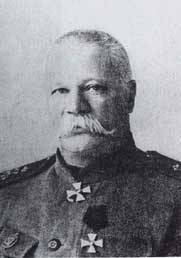
L. V. (P) Lesh, as can be seen from the text of the order, began to pay special attention to the formation of a mobile reserve.
Up to 7 thousands of prisoners, 6 guns and 30 machine guns taken by units of the 3 army became trophies of the operation.
In business - 8 Army
The offensive of the strike group of the 8 Army — the 2 Caucasus and 23 Army Corps — was also unsuccessful. The commander of the army, cavalry general A. A. Brusilov, did not believe in the success of such an offensive. He later wrote in his memoirs that the 23 Army and 2 Caucasian Army Corps (previously aimed at Lyubachev) were transferred to help his army (to fight for Przemysl) - and, therefore, it was predetermined where these formations were supposed to hit on the enemy, who by this time at Radymno part of the forces crossed to the right bank of Sana'a. A. A. Brusilov proposed his plan for using these corps: to secretly enter into Przemysl, and together with the fortress garrison, carry out with all these forces a sortie from the western forts to the rear of the enemy forces located on the right bank of the Sana'a, as well as on the left bank - from Yaroslav to Thinking. But this is on condition that troops on the entire front would start a simultaneous battle with the enemy. The 3 Army in this case would have to collect the maximum possible fist to strike south of Lezajsk. I don’t know, the general noted, how, given the lack of ammunition, this plan was feasible, but with such actions there were "some chances for success, the size of which was impossible to determine in advance."
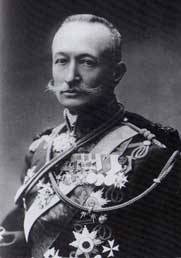
The commander also reacted to an operation incomprehensible to him, respectively. The chief of staff of the 2-th Caucasian Army Corps wrote that through Lvov the corps was moving to the Lyubachev area, while the 51-I division, being landed in front of the city of Kholm, was moving in marching order. After the concentration of the 2-th Caucasian Army Corps, his infantry commander S. B. S. B. Mehmandarov, along with the chief of staff, were called up to the headquarters of the 8-th Army (located in Rava Russkaya), where commander General Brusilov designated a site for the attack of the corps - in order to facilitate the situation of the covered Yaroslav. At dawn, an attack began on the site: Zapalov - Zagrody - Korzenice - Tukhla. And again, the corps acted alone - and it should from the north and south cover both divisions with a wire-reinforced wooded hill near Zagroda.
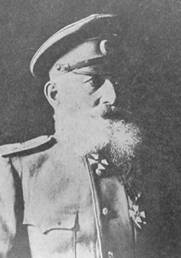
Payment for the miscalculation of the commander. 2-th Caucasian Army Corps at the village. Zagrod
Unprepared by the command of the 8 Army, the offensive of the 2 Army of the Caucasus at the village Zagrod turned into a tragedy for soldiers and officers of its constituent parts.
Lieutenant K. Popov, officer of the 13-th Grenadier Erivan Tsar Mikhail Fedorovich regiment (Caucasian Grenadier Division of the 2-th Caucasian Army Corps) in his memoirs conveyed impressions of the offensive of his unit near Lyubachev. The lieutenant recalled how, on the 17 of May, the regiment came out from Lyubachev with a wide and long protective tape. The regiment was brought to the kit - in the company of Popov, there were 203 grenadiers with 2 officers. By the evening of May 18, the Erivanians walked along the railway embankment. It was decided that the 5 company was advancing along the embankment in the direction of the village. Zagrod, 6, 7 and 8 companies - advance to the left of the 5 company. The 3th battalion was supposed to advance to the left, and the 4th and 1th battalions were to remain in reserve. The company commanders explained the task in detail, gave the necessary orders. Each platoon had 4 hand grenades of the Novitsky system.
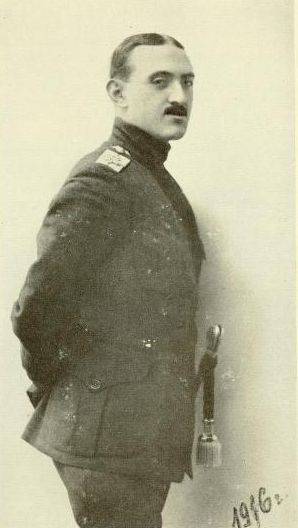
But the offensive order was canceled - the attack was carried over to 7 in the morning, after the artillery preparation. To attack a fortified position during the day, according to a participant in these events, with artillery preparation, which they knew the price (shells were in very limited numbers), "did not smile."
In the morning of May 19, artillery preparation began, then moved forward. The Germans were waiting, and as soon as the lieutenant got out of the trench to raise the company to attack, several shrapnel whistled. Rota took a quick step, led by officers, and immediately began to suffer losses. 50 steps did not go as the junior officer and the sergeant major were injured. The advance was “in some kind of hell”, a German machine gun hit in the face. 2 grenadiers fell near the lieutenant - one got 8, and the other 6 machine-gun bullets. I had to step back steps on 40 and dig in the rye.
If the German artillery continued to shoot at the place where the grenadiers lay, they would be destroyed. But an hour later, single trenches as deep as human height were already ready. The company 7 located behind me lost the company commander killed and also lay down. Rota Popova lost 130 people killed and wounded.
In 23 hours it was ordered to attack Zagrod again. But the small number of people remaining in the company played a role. After walking 400, the lieutenant, together with his fighters, went to a weakly protected place - right to the wire fence. They managed to pull the slingshots with wire, but there was only 6 grenadier near Popov - and it was impossible to do anything serious.
The regiment lost in the day over 2000 grenadiers of those killed and wounded (i.e., 50% of the personnel of the regiment). On the morning of the 21 May, on the same site, the 14 Grenadier Georgian General Kotlyarevsky Regiment attacked, and the 2 Brigade attacked to the right of the canvas - also without success.
The regiment commander, Colonel E. E. Vyshinsky recalled how his grenadiers, who had gone on the attack well done, reached wire fences - despite the Germans mowing them with machine guns, shrapnel and rifle fire in whole ranks. And by the dawn of the 20 of May, they lay under wire fences. It was not possible to advance further. Having lain day, at night we moved back to the starting position. It was not possible to do anything, but the losses were huge: officers - 5 killed, 7 wounded, 1 shell-shocked, lower ranks - killed and died from wounds to 600, wounded before 900.
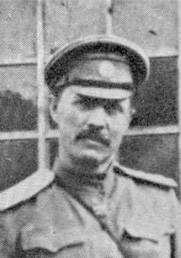
Another regiment officer conveyed his impressions in this way. In the morning of May 19, artillery preparation began - and the fire of the companies of the 2 and 3 battalions prepared for the attack covered their fire. Soon, as an eyewitness notes, “they managed to stop this disgrace” and the artillery again opened fire. After 20 - 25 minutes of shooting, she fell silent, and two battalions of Life Erivans were ordered to move on the attack. Evening came. By 12 of the night, it was ordered to build companies in platoon columns - with rows open a step. The companies of the 1 and 4 battalions approached the line of advanced battalions. There were Georgians in the reserve, and the 15 Tiflis grenadier of His Imperial Highness Grand Duke Konstantin Konstantinovich, the regiment to the right, also had to attack. Despite the failure of the afternoon assault, the fighters ’spirits did not have time to cool down, and the regiment rushed forward amicably.
The picture of a night attack by the entire regiment of the enemy’s fortified position, when in a small area (near a mile and a half) from close range a huge mass of people (more than 3000 people) rushed forward, as an eyewitness noted, was magnificent and unforgettable. The daytime hell repeated, but with different effects. During the day everything was smoking, clouding with dust and fog, and now there was a firework of all kinds of lights: leaving the light of the falling comet, shrapnel burst in the air, throwing up sheaves of fire on the ground, shells and hand grenades burst with a deafening thunder, bright stars denoted the line of shooting infantry machine guns with fiery tongues, and hundreds of missiles soared above all of this, illuminating the battlefield with a blinking phosphoric light.
And only a “miracle” saved the Germans from imminent death.
Such a “miracle” was a wire fence untouched by Russian artillery!
The grenadiers, having approached the wire, already threw hand grenades into the German trenches, but it was impossible to tear apart and smash the wire fence in a few minutes, or even seconds, which the attacker had in such cases. The remnants of the mouth, only dozens of people, began to lie, fleeing the murderous fire. Who could, he dug in (there and then tubercles of land grew), and the wounded lay not daring to move - for they were immediately finished off at close range.
After this battle, the remnants of the Caucasian grenadier division near the village of Tukhly were replaced by the Life Guards Kexholm Regiment of the 3th Guards Infantry Division of the 23th Army Corps.
To be continued ...
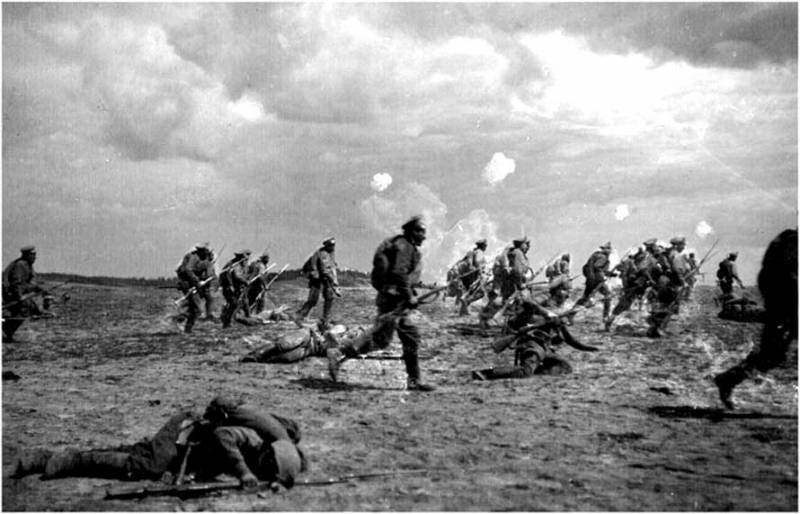
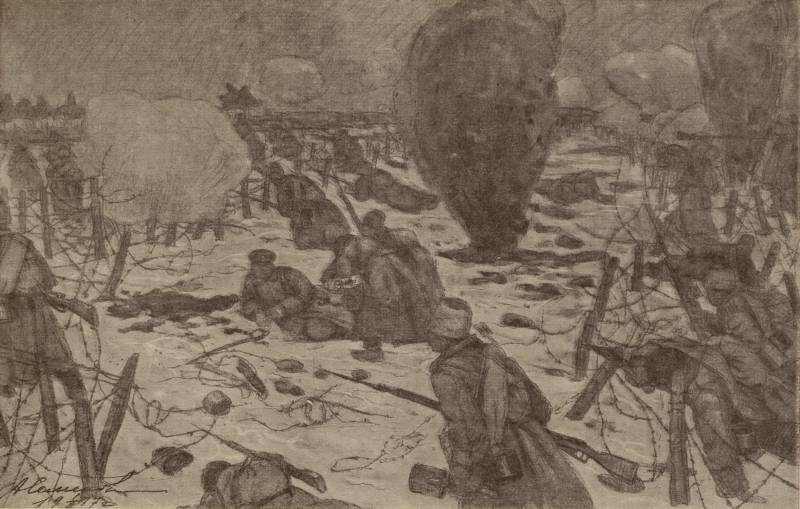
Information